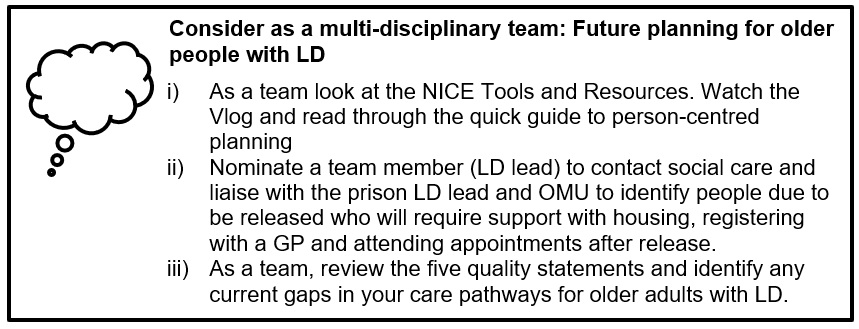Resources for Secure Environments
Providing healthcare in secure environments such as prisons, secure hospitals, young offender institutions and immigration removal centres presents unique challenges for GPs and primary care professional.
Learning and Intellectual Disabilities in Secure Environments
Growing older with learning disabilities
NICE guideline: NG96: Care and support of people growing older with learning disabilities 2018
The NG96 guideline covers the identification of changing needs, planning for the future, and delivering services including health, social care and housing for people growing older with LD. There is guidance about recording actions identified in the annual health check, reasonable adjustments to assist with appointments, and planning for hospital transfers, including the use of a hospital passport. Skills, knowledge and training provision for staff are covered.
NICE: QS187: Learning disability: care and support of people growing older (2019)
There are five quality statements in QS187: Each person growing older with LD should have: a named lead practitioner to co-ordinate care, a person-centred needs assessment, future care planning and reviews, an annual health check (to inform health action plan), a meeting with hospital staff prior to planned admissions (use of hospital passport).

Further resources:
- NICE guideline [NG96]: Care and support of people growing older with learning disabilities
- NICE - Person-centred future planning: A quick guide for practitioners supporting people growing older with learning disabilities
NICE: Support for adults with learning disabilities as they grow older - What to expect
This is a short video for older patients with LD. Below is the link to an Easy Read version of the guideline.